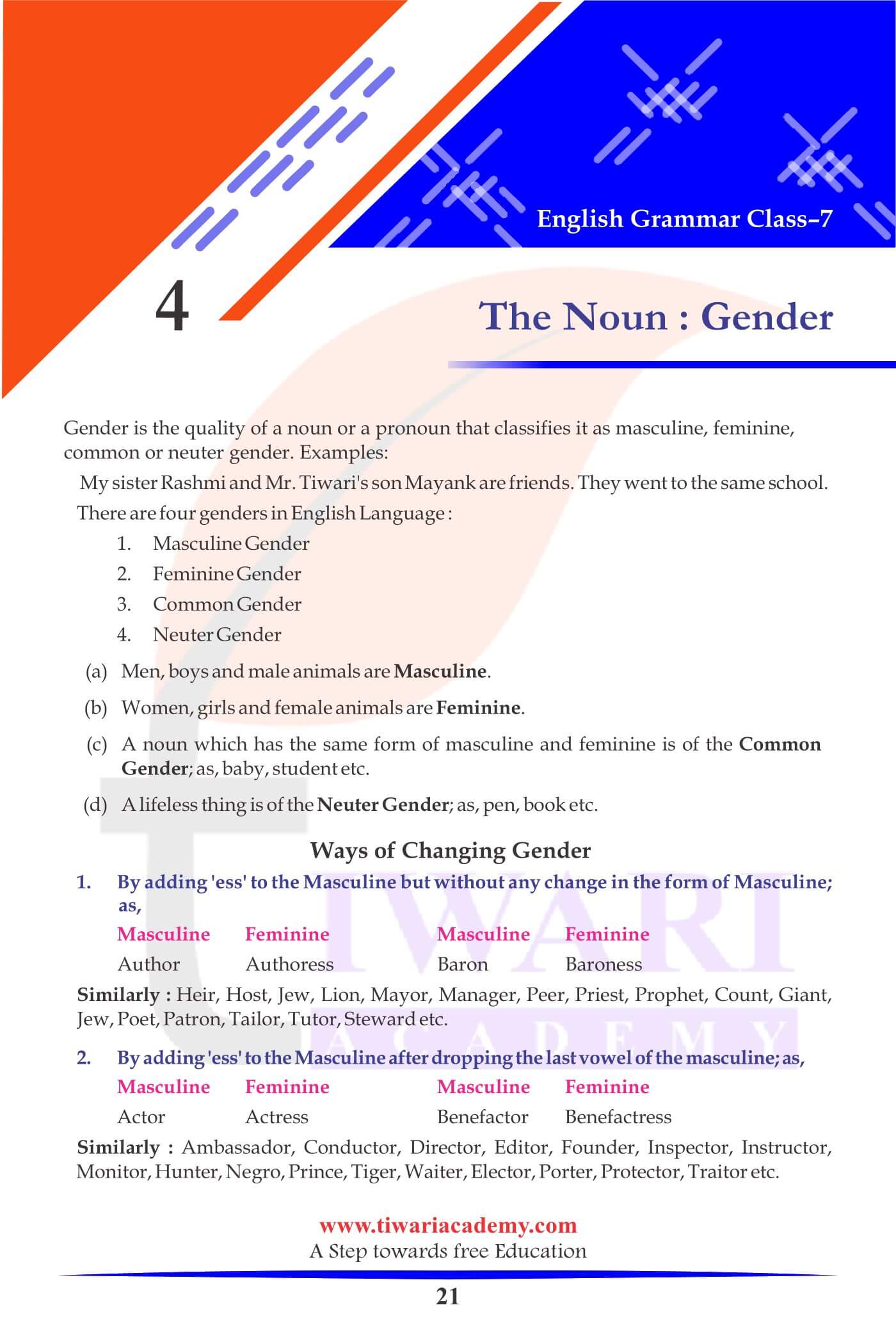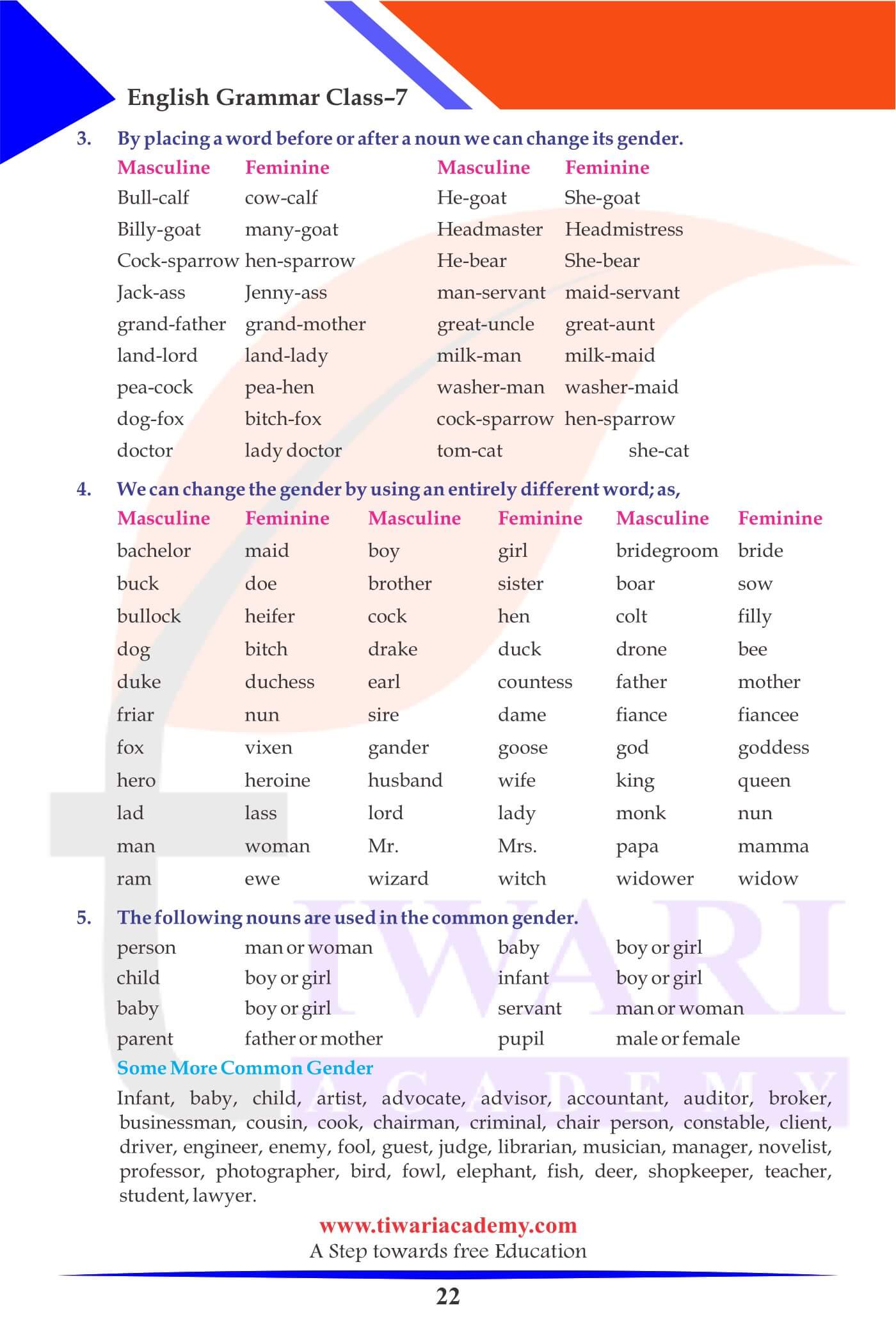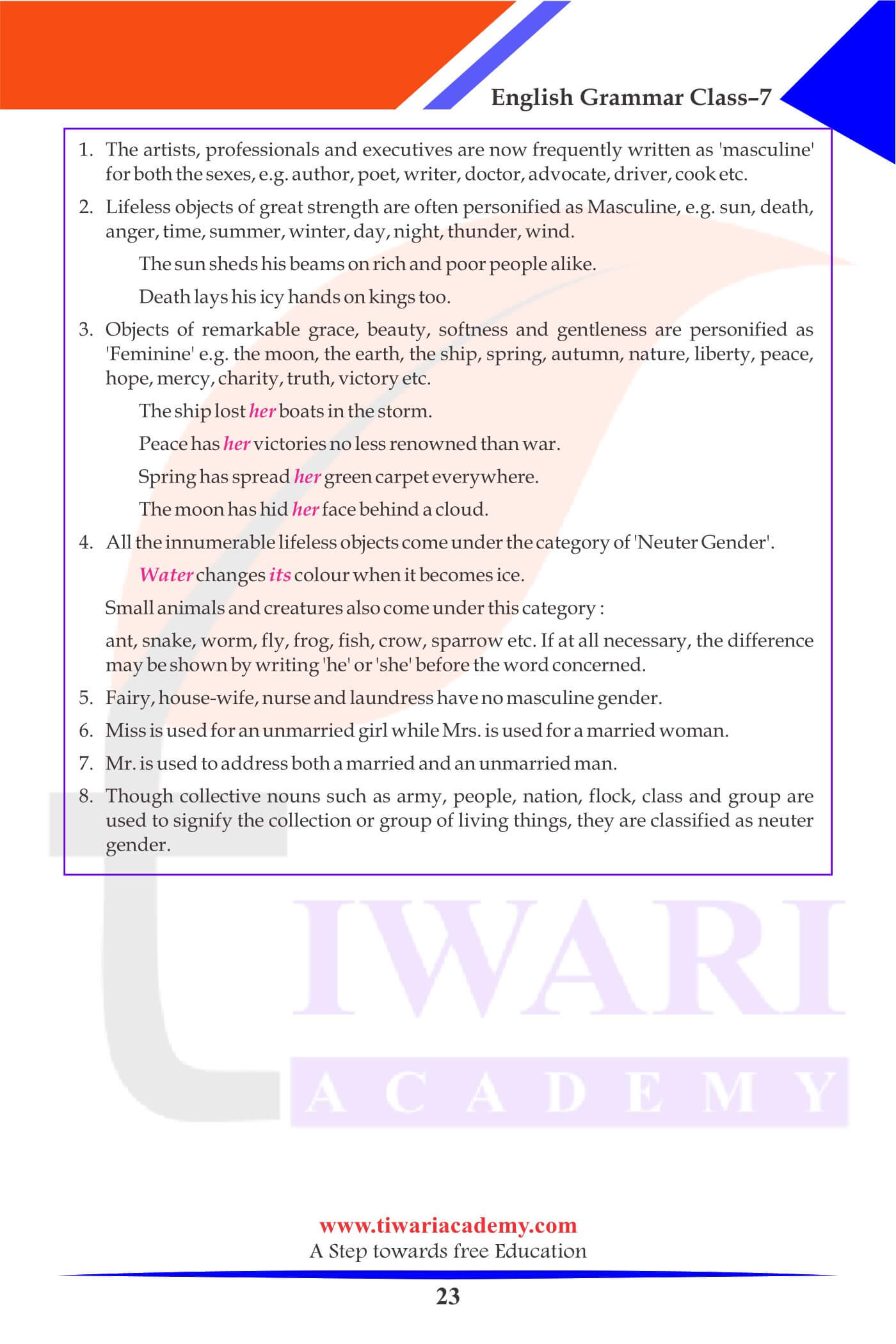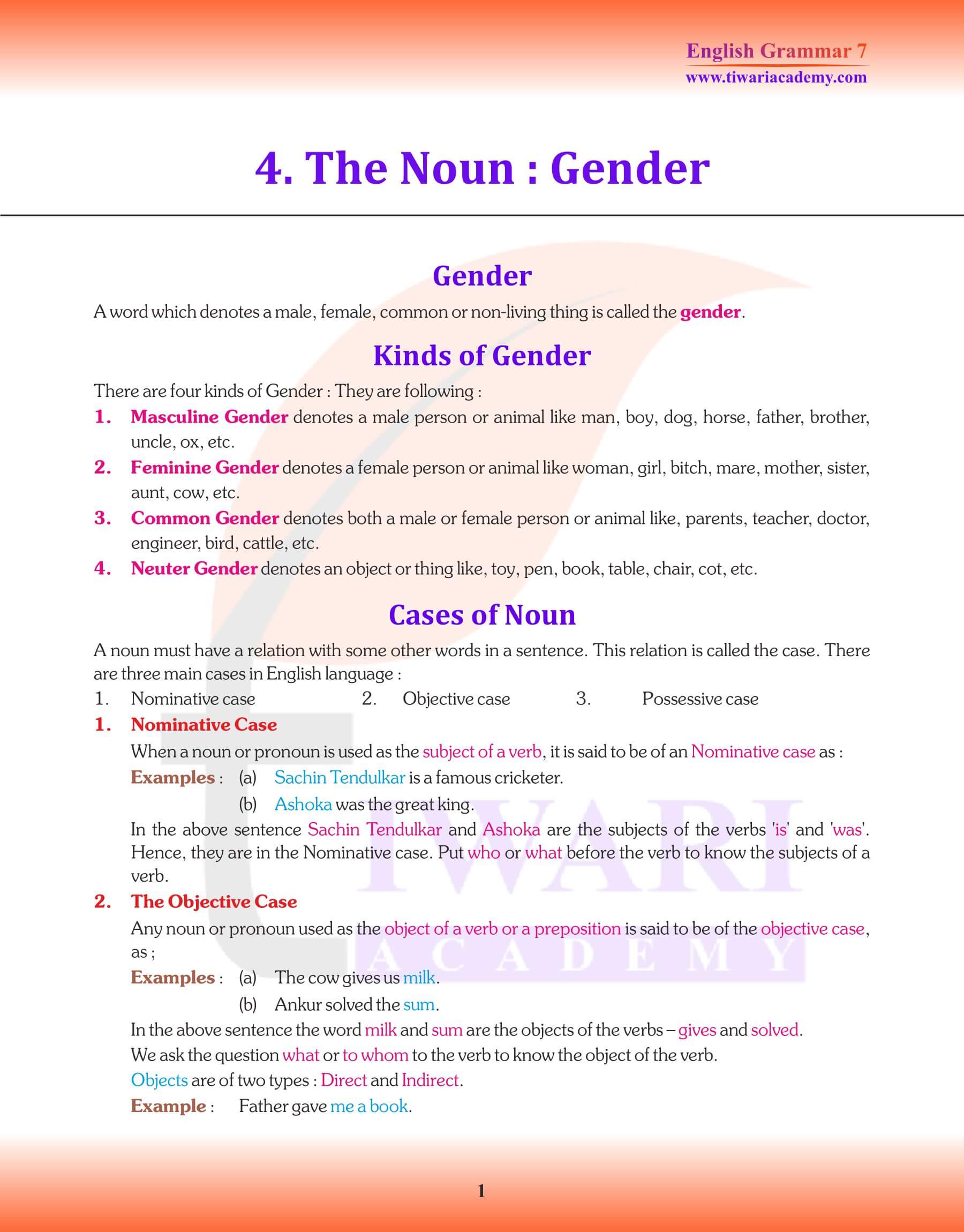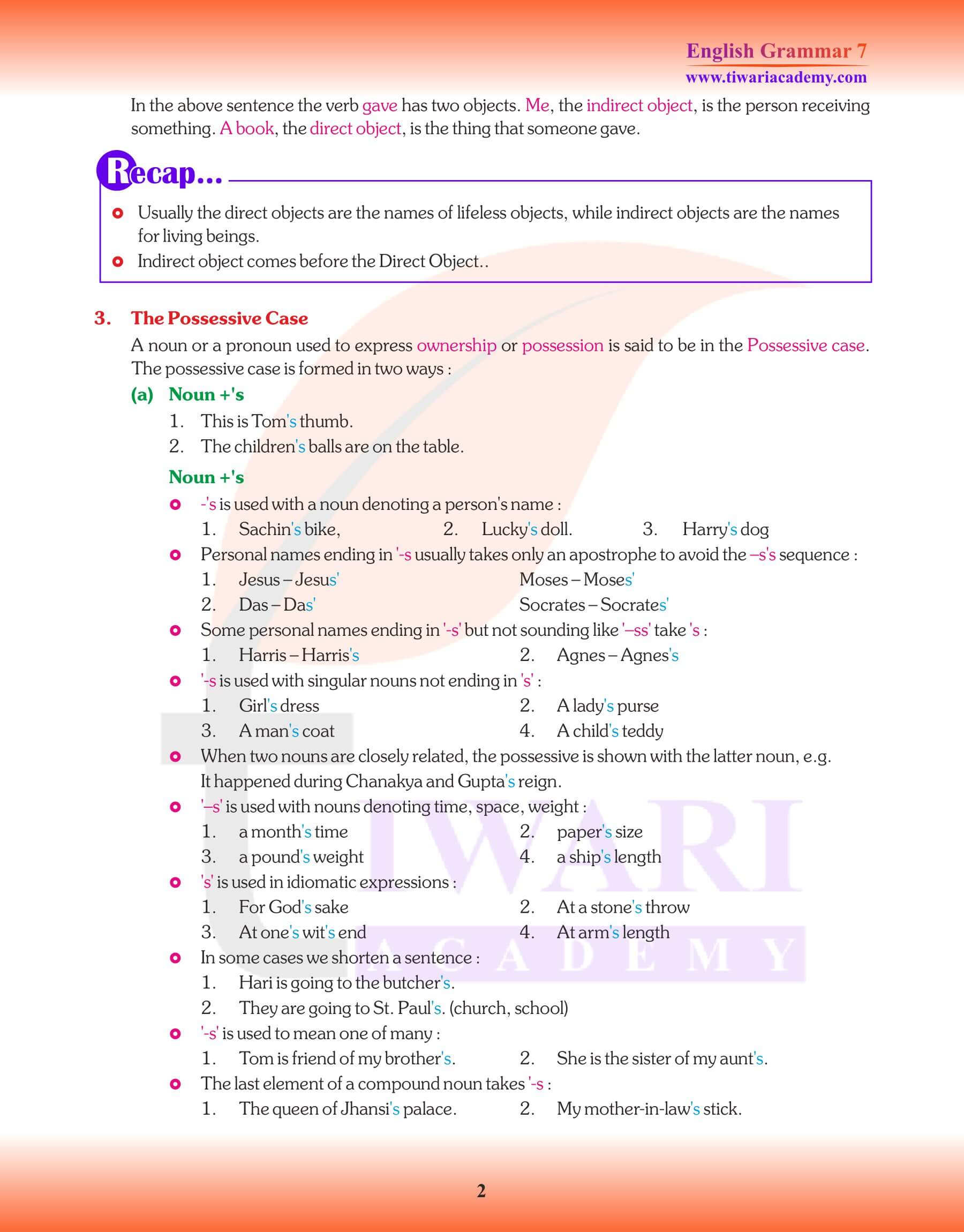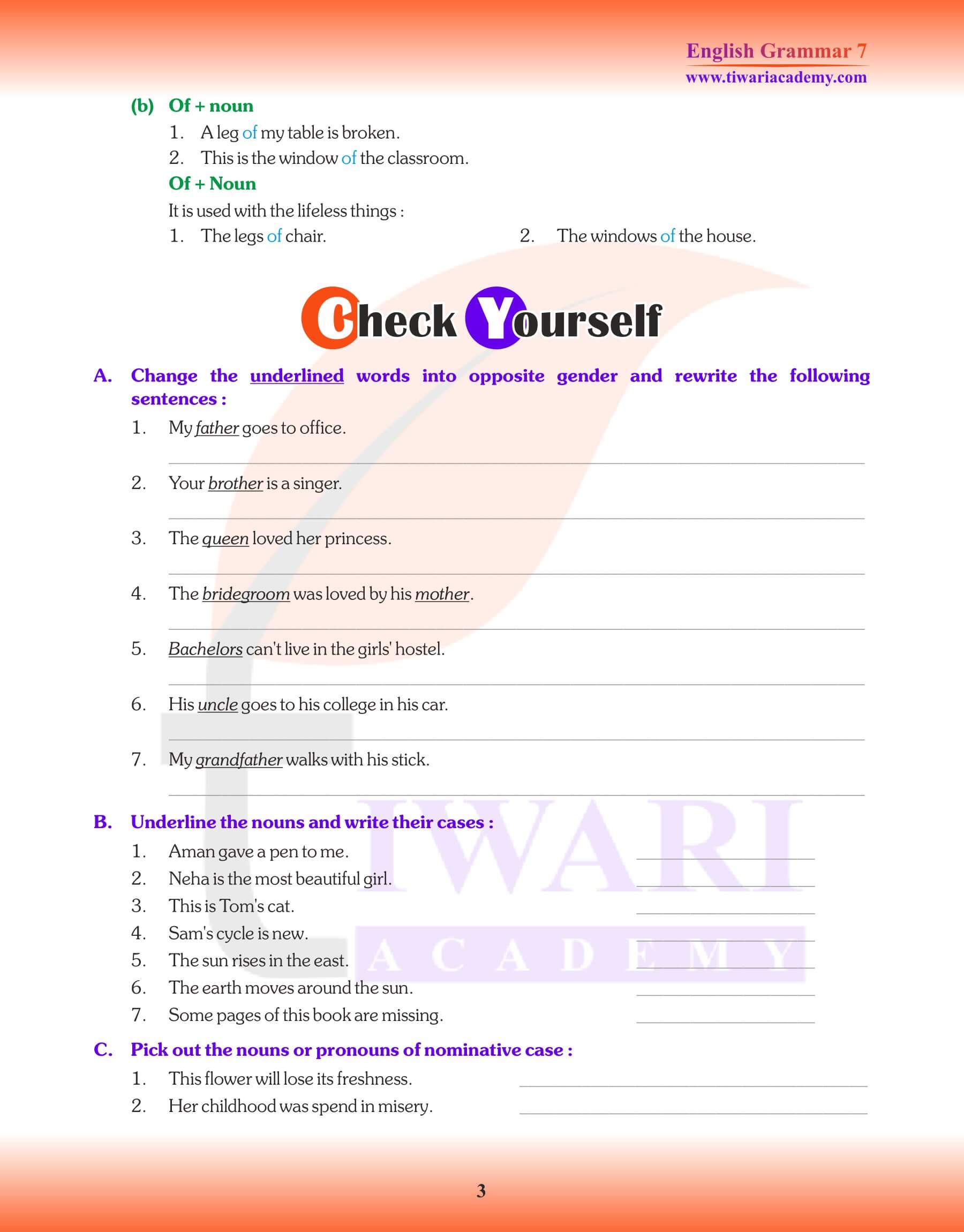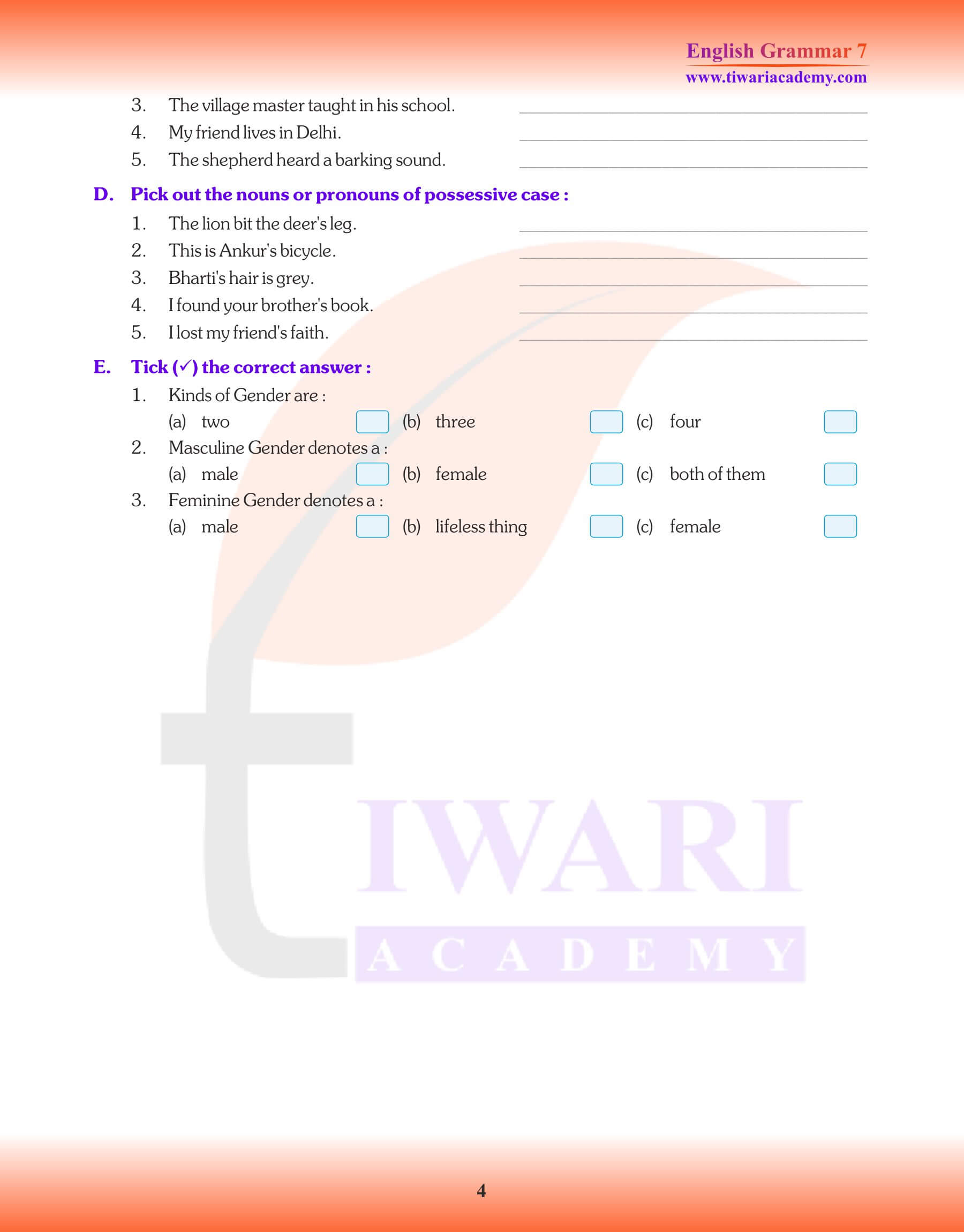Class 7 English Grammar Chapter 4 The Noun Gender. Gender is the quality of a noun or a pronoun that classifies it as masculine, feminine, common or neuter gender. There are four genders in English Language: Masculine Gender, Feminine Gender, Common Gender and Neuter Gender. Men, boys and male animals are Masculine. Women, girls and female animals are Feminine. A noun which has the same form of masculine and feminine is of the Common Gender; as, baby, student etc. A lifeless thing is of the Neuter Gender; as, pen, book etc.
Class 7 English Grammar Chapter 4 The Noun – Gender with Examples
In Chapter 4 of the Class 7 English Grammar syllabus, learners dive into the fascinating realm of ‘Noun Genders’. The English language showcases a rich tapestry of classifications based on gender, allowing for a nuanced expression of nouns and pronouns. Specifically, there are four recognized genders: Masculine, Feminine, Common, and Neuter. The Masculine Gender encompasses men, boys, and male animals. On the flip side, the Feminine Gender pertains to women, girls, and female animals, providing a distinct differentiation between the sexes.
| ClassL 7 | English Grammar |
| Chapter: 4 | The Noun – Gender |
| Content: | Textbook and Revision Book |
| Academic Session: | 2024-25 |
The Noun: Gender masculine, feminine, common, neuter
English gracefully introduces the Common Gender. This category includes nouns that possess a uniform form for both masculine and feminine, such as ‘baby’ and ‘student’. It’s a testament to the language’s evolving inclusivity. Lastly, the Neuter Gender captures inanimate objects or lifeless entities, including nouns like ‘pen’ and ‘book’. Through this chapter, students gain a profound understanding of gender classifications, further refining their proficiency and mastery over the nuances of English grammar.
Ways of Changing Gender
By adding ess to the Masculine but without any change in the form of Masculine or By adding ess to the Masculine after dropping the last vowel of the masculine.
| Masculine | Feminine |
|---|---|
| Author | Authoress |
| Baron | Baroness |
| Actor | Actress |
| Benefactor | Benefactress |
Changing of Masculine to Feminine by placing a word before or after a noun we can change its gender.
| Masculine | Feminine |
|---|---|
| Cock-sparrow | Hen-sparrow |
| He-bear | She-bear |
| Land-lord | Land-lady |
| Milk-man | Milk-maid |
| Grand-father | Grand-mother |
| Great-uncle | Great-aunt |
We can change the gender by using an entirely different word.
| Masculine | Feminine |
|---|---|
| Duke | Duchess |
| Earl | Countess |
| Father | Mother |
| Brother | Sister |
| Bridegroom | Bride |
| Boy | Girl |
Nouns as Common Gender
There are some words which are used as common gender. For example, Infant, baby, child, artist, advocate, advisor, accountant, auditor, broker, businessman, cousin, cook, chairman, criminal, chair person, constable, client, driver, engineer, enemy, fool, guest, judge, librarian, musician, manager, novelist, professor, photographer, bird, fowl, elephant, fish, deer, shopkeeper, teacher, student, lawyer, etc.
Points to be remembered
The artists, professionals and executives are now frequently written as masculine for both the sexes, e.g. author, poet, writer, doctor, advocate, driver, cook etc.
Lifeless objects of great strength are often personified as Masculine, e.g. sun, death, anger, time, summer, winter, day, night, thunder, wind.
Fairy, house-wife, nurse and laundress have no masculine gender.
Miss is used for an unmarried girl while Mrs. is used for a married woman.
Mr. is used to address both a married and an unmarried man.
Though collective nouns such as army, people, nation, flock, class and group are used to signify the collection or group of living things, they are classified as neuter gender.
